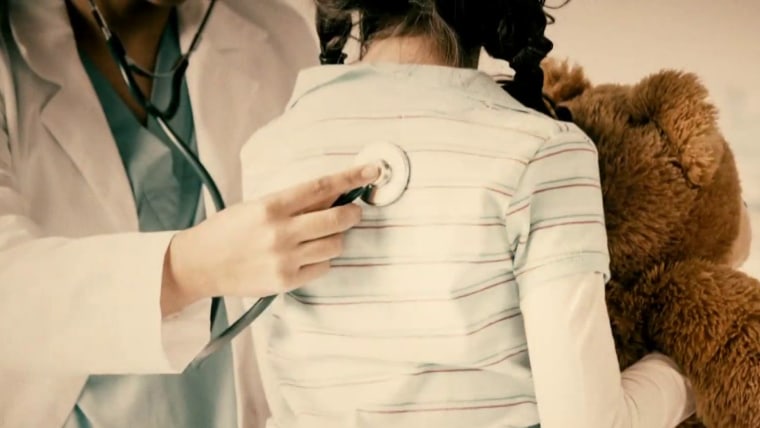Severe hepatitis cases in kids rise as WHO calls for investigation
The number of cases of unexplained, severe hepatitis in children continues to tick upward as doctors around the globe scramble to pinpoint a cause.
On Thursday, the World Health Organization said that about 170 cases have been reported so far in 16 countries, up from 74 cases in just the United Kingdom two weeks ago.
Ten percent of these cases have been so severe that children needed liver transplants. One child died, according to the WHO, though it’s unclear where or when that death occurred.
In the United States, the Wisconsin Department of Health Services said Wednesday it is investigating the death of one child, as well as suspected cases in three other children. In addition to the possible fatality, one of those children needed a liver transplant.
Cases have also been identified in other states, including three in Illinois and two in North Carolina, according to those states’ health departments, and nine cases in Alabama.
The Centers for Disease Control and Prevention has only confirmed the cases in Alabama thus far, the agency said in a statement to NBC News on Thursday.
But experts say there are likely others, and the WHO called on health authorities from around the globe to report and investigate any unexplained cases of hepatitis in otherwise healthy children. Patients have ranged in age from 1 month through 16 years old, however most severe cases have tended to be among children ages 10 and younger.
Last week, the CDC issued a similar alert: a health advisory calling on physicians to be on the lookout for unusual and severe hepatitis in kids.
People commonly associate hepatitis with the hepatitis viruses, like hepatitis type A, B or C. But hepatitis simply refers to inflammation of the liver in general, and can have hundreds of causes: other viruses, medications, toxins and even contaminated food.
But no single cause has been identified that would link all of these cases, Richard Pebody, head of the WHO/Europe High-threat Pathogens team, said during an online question-and-answer session Thursday.
“These are children who have previously been fit and well,” he said. “This is an unusual phenomenon that we’re seeing, and that’s why we’re alerting parents and public health authorities.” Historically, hepatitis that results in liver failure has been limited to children with underlying health conditions.
That’s not to say that healthy children have never developed unexplained, severe hepatitis or needed a liver transplant. Last year, 501 children in the U.S. had a liver transplant, according to the United Network for Organ Sharing. The majority were younger than 6.
What’s striking in these new hepatitis cases is that they’ve all occurred over a relatively short time frame, and the cause is unclear.
Dr. Markus Buchfellner, a pediatric infectious diseases fellow at the University of Alabama at Birmingham, first noticed the unusual pattern of unexplained hepatitis in that state last October.
The first patient had abdominal pain, jaundice and elevated liver enzymes that signaled hepatitis.
“Then we had a second one, and then a third one, and then a fourth one,” Buchfellner said. “That’s when we realized — maybe there’s something here.”
Ultimately, nine young patients ages 6 and younger in Alabama were identified. Two needed a liver transplant.
“Get to the hospital”
It was early July 2021 when Stefanie Cunha, of Gilbert, Arizona, noticed her daughter, Quinn, wasn’t acting like her usual, otherwise healthy 3-year-old self.
Quinn was overly tired and she’d lost her appetite. “Then I noticed that the white part of her eyes were turning yellow, and I was like, something is off,” Cunha said.

She took Quinn to her pediatrician, who did a blood test. Within hours, Cunha said the doctor called her and told her to stay calm and brace for what she was about to learn.
“Her liver numbers are not good, and she is close to liver failure. I need you to get to the hospital,” Cunha recalls the doctor saying.
Quinn had hepatitis. Her liver function failed so rapidly that she needed a transplant within weeks of hospitalization.
But despite extensive testing, doctors never determined the cause of her illness.
“We do not know why she went into liver failure,” said Quinn’s doctor, Dr. Sheetal Wadera, medical director for liver transplantation at Phoenix Children’s. Quinn had tested negative for Covid-19 and other viruses.
While Wadera has treated hepatitis in children for more than a decade, she told NBC News that she started seeing a slight increase in unexplained cases starting at the beginning of this year. (No cases have been officially reported by the Arizona Department of Health Services, however.)
Globally, doctors began noticing these unusual cases last fall. Quinn’s case occurred last summer, but Wadera said that she and other investigators are now analyzing cases like Quinn’s to…
Read More: Severe hepatitis cases in kids rise as WHO calls for investigation


